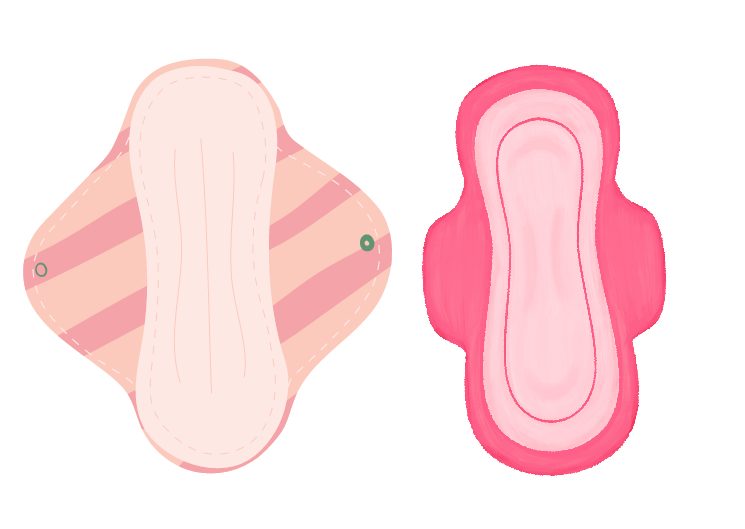What is menstrual precariousness?
Menstruation, a normal phenomenon for women
Menstruation is blood that flows from the vagina for a few days each month.
Your mother, your sister, your cousins and almost all the women you know have their period every month. The age of a woman’s first period varies from one woman to another. Generally, it happens between the ages of 9 and 16. After that, you have your period until you’re 45, unless you’re pregnant.
Contrary to what some people think, menstruation is normal and a sign of good health. You can be proud of having your period: it shows that your body functions like a woman’s.
A woman menstruates on average 2,000 days in her life. To avoid getting soiled, women have to buy sanitary protection. In total, a woman will need 10,000 sanitary pads in her lifetime.
What is menstrual insecurity?
But the problem is that not all women have the money to buy it. This is what we call “menstrual insecurity”. Menstruation is a natural phenomenon that affects every woman in the world, but it’s not a central issue for the community. The figures speak for themselves: 500 million women worldwide cannot afford to buy menstrual protection.
Many girls have to manage without menstrual protection…
Young girls and women have to manage without sanitary protection by using anything that can absorb their menstrual blood. For example: old cloth, paper and even newspapers.
Girls often don’t go to school during their period because they don’t have access to decent toilets or are afraid of getting a stain on their clothes. It is estimated that every girl misses 40 days of school a year. Young girls then tend to leave school early, which has consequences for their future working lives.
Some girls say they have to keep their disposable menstrual pads on all day, whereas it is recommended that they change every 3/4 hour. Disposable sanitary towels also contain toxic substances. The accumulation of blood in the pad encourages the development of bacteria and unpleasant odours, and can even lead to infections such as mycosis or toxic shock. It’s best to change your pads as regularly as possible.
In order to have menstrual pads, many young girls have to work, go without food, steal or, in some cases, prostitute themselves. In the latter case, sexual relations are generally unprotected, and this can lead to pregnancy, the risk of sexually transmitted infections (STIs) or HIV AIDS.
If you can’t buy sanitary towels, don’t be ashamed to talk about it. Many girls and women are in the same situation as you. Rather than putting yourself in danger, try talking to someone you trust (your mother, sisters, cousins or friends). Even if they seem embarrassed, they’ll probably have some advice to give you and maybe even a towel. If you don’t know anyone you can trust, don’t hesitate to talk to your school nurse or contact a Lydia midwife.
If you see someone around you who needs help or advice, don’t hesitate to help her. She’ll be there for you when you need her.
Source : Aïssatou Ndahté Cisse



